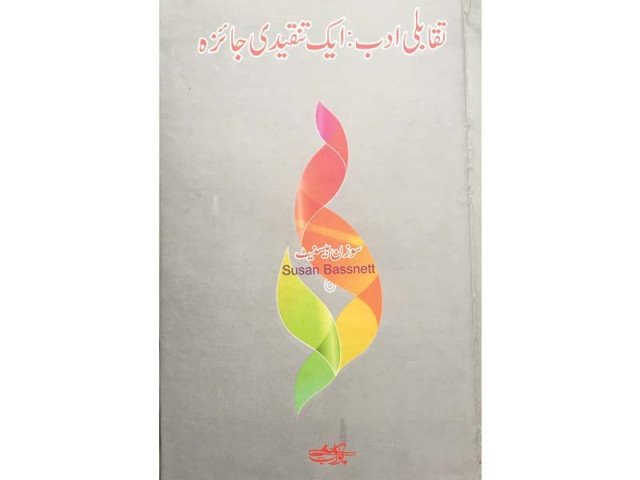Under the microscope
Urdu translation of ‘Comparative Literature: A Critical Introduction’ creates new dimensions for Pakistani literature

Urdu translation of ‘Comparative Literature: A Critical Introduction’ creates new dimensions for Pakistani literature.
In June 2015, former Pakistani ambassador Tauheed Ahmed published an Urdu translation of Susan Bassnett’s book entitled Comparative Literature: A Critical Introduction.
The original work, published in 1993, is a must-read for students of literary and translation studies across western universities. It is significant in understanding the disciplinary construction and unique perspective of the subject.
However, as obvious as the term comparative literature’ may appear, it is pertinent to ask what exactly comparative literature is. Like many other humanities taught today, comparative literature is the result of a historical transition.
In Europe, when nations struggled for independence from the Ottoman Empire and Austro-Hungarian Empire, France and Russia, the new nation-states that came into being, were steeped in a particular kind of national consciousness.
Book review: A mountain of disappointment
Within such awareness of division and diversity, a debate of comparing literatures also ensued. As Bassnett writes in her book, “Comparative literature seems to have emerged as an antidote to nationalism, even though its roots went deep into national cultures.”
Explaining the origins of the discipline, from its recent crisis in the West to its importance in contemporary humanities, Bassnett moves into the Third World its understanding of the subject. For example, she studies its need and usage in the Indian subcontinent, an area rich with dozens of regional languages, local histories and cultures. Bassnett presents a counter-narrative and stresses the politicisation of literature in India when she explores western definitions and the way Western universities dealt with the discipline since 19th century to its post-WW institutional teaching. She quotes author Swapan Majumdar’s argument that Indian literature should be compared not only with any single literature of the west – as is the norm – but with the concept of western literature as a whole.
On the other hand, regional literature should be understood as the “constituent subnational literature” in India.
In other words, Bassnett brings out a rather non-western and non-traditional understanding of the discipline. Further arguing for a re-examine of monolithic terms as Indian literature or what we now have as Pakistani literature — a broad category that disregards variants of what Majumdar calls “constituent subnational literatures”.
By translating this book, Ahmad has made an important contribution to our understanding of literature and sensitising literary scholars, teachers and students of thinking inside the box of one’s own nationalism and religion.
The translation also emphasises the need of comparative perspective in Pakistan’s literature departments. There is an unfortunate disconnect of local literatures that lack exchange in the institutional teachings at universities in the country.
As a result, a comparative perspective would be instrumental in training our students to be more critical and multi-lingual in their reading, opposed to the current eurocentric fixation of our English departments and a cocooned training of the Urdu departments. It will help students to be sensitive and considerate through an inclusive understanding of literature from different languages and cultures. The ones that remains unnoticed because of our own lack of interest and training.
This is not a literal translation of Bassnett’s work. On the contrary, it substitutes his work in Urdu language — a form of translation the 19th century German writer, Wolfgang Goethe suggested as the most desired version of the original text. Ahmed’s passionate commitment to literature is also reflected in his recently published Urdu translation of Erasmus’ In Praise of Folly, an English translation of a collection of essays by Muslim philosophers entitled A Large White Crescent and in setting up Pakistan’s first translation studies department at University of Gujrat in Punjab.
Title: Taqabli Adab: Ek Tanqeedi Jaiza
Author: Toheed Ahmed
Publisher: Poorab Academy Islamabad
Pages: 220
Price: Rs400
The writer is the American Institute of Pakistan Studies fellow at the University of North Carolina, Chapel Hill and is currently translating Mirza Athar Baig’s short stories, ‘Be-Afsana’, in English
Published in The Express Tribune, March 27th, 2016.
Like Life & Style on Facebook, follow @ETLifeandStyle on Twitter for the latest in fashion, gossip and entertainment.



















COMMENTS
Comments are moderated and generally will be posted if they are on-topic and not abusive.
For more information, please see our Comments FAQ